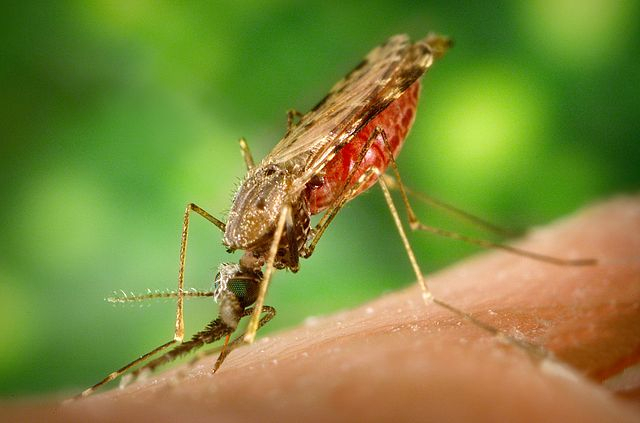A recent study by scientists has confirmed that geoengineering could successfully block the detrimental impacts of climate breakdown which could make billions vulnerable to malaria, especially those residing in tropical areas.
Published in the Nature Communications the study was conducted by Carlson, Ph.D., an assistant research professor at the Center for Global Health Science and Security at Georgetown University Medical Center with Trisos, Ph.D., a senior researcher at the University of Cape Town in South Africa.
The study is believed to be a first of its kind analysis on the aftereffects of geoengineering the climate on infectious diseases, focusing heavily on Solar Radiation Management (SRM) as a quick remedy to minimize the effects of climate change.

The process of geoengineering, according to the authors, will involve the removal of carbon dioxide from the sky so the atmosphere can close in on reduced levels of heat and SRM will reflect a higher ratio of sunlight away from Earth so that a less ratio heat is absorbed in the beginning.
This study focuses on the SRM's part, especially the process of introducing aerosols into the stratosphere which would reflect the approaching sunlight. The scientists believe that this process would assist in "pausing" global warming for the time being. SRM has been recognized as the option which could successfully help decrease 'climate injustice'. However, there has not been any in-depth analysis on its aftereffects on health, the Guardian reports.
In order to replicate malaria transmissions in two future situations, where one exists with medium or high levels of global warming and the other without geoengineering, a team of researchers from the United States, Bangladesh, South Africa, and Germany had tried their hands at utilizing climate models.
The models were utilized to classify which temperatures are befitting for transmission by the Anopheles mosquito and further determine how many people reside in areas where transmission could occur. It was discovered that in some regions, the malaria parasite could not survive in high temperatures hence a swift cooling of the said regions could setback those decreased numbers resulting in an upsurge in the disease. In the other high warming situation, the modeling established that billions were vulnerable do the disease in the geoengineered world.

"On a planet that's too hot for humans, it also gets too hot for the malaria parasite," said Dr Carlson, the lead author of the study, "cooling the planet might be an emergency option to save lives, but it would also reverse course on those declines."
He further explained that, "the implications of the study for decision-making are significant. Geoengineering might save lives, but the assumption that it will do so equally for everyone might leave some countries at a disadvantage when it comes time to make decisions. If geoengineering is about protecting populations on the frontlines of climate change, we should be able to add up the risks and benefits — especially in terms of neglected health burdens, such as mosquito-borne disease."
The research data also detailed a possibility of an exchange between regions, meaning that a decrease in one region would amount to a similar increase in another region. In both simulations, it was discovered that geoengineering could successfully lessen the dangers posed by malaria in the Indian subcontinent but that then results with a rise of the disease in the South East nations.
This would further complicate the scenario for decision-makers when combating the challenges of climate crisis.









